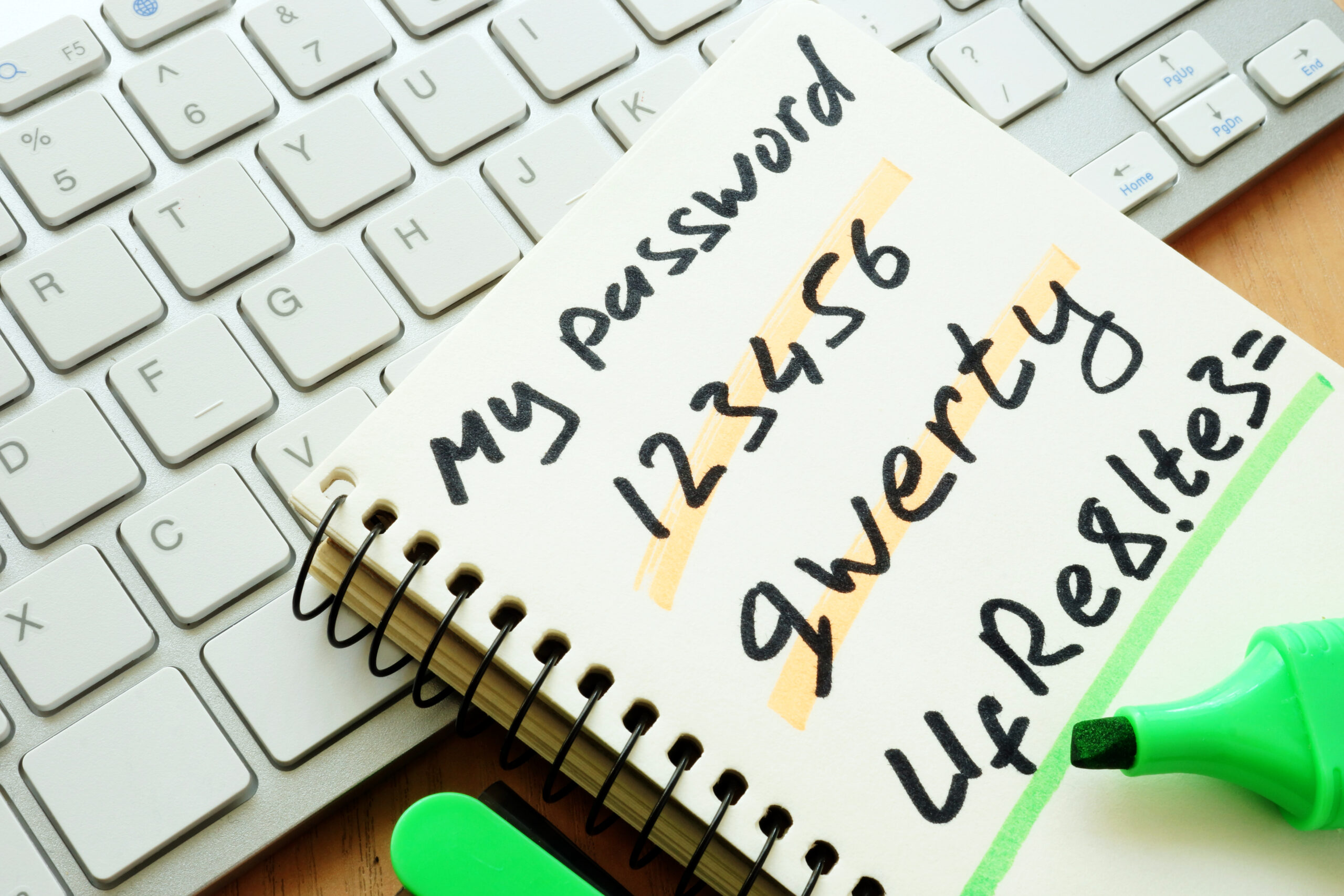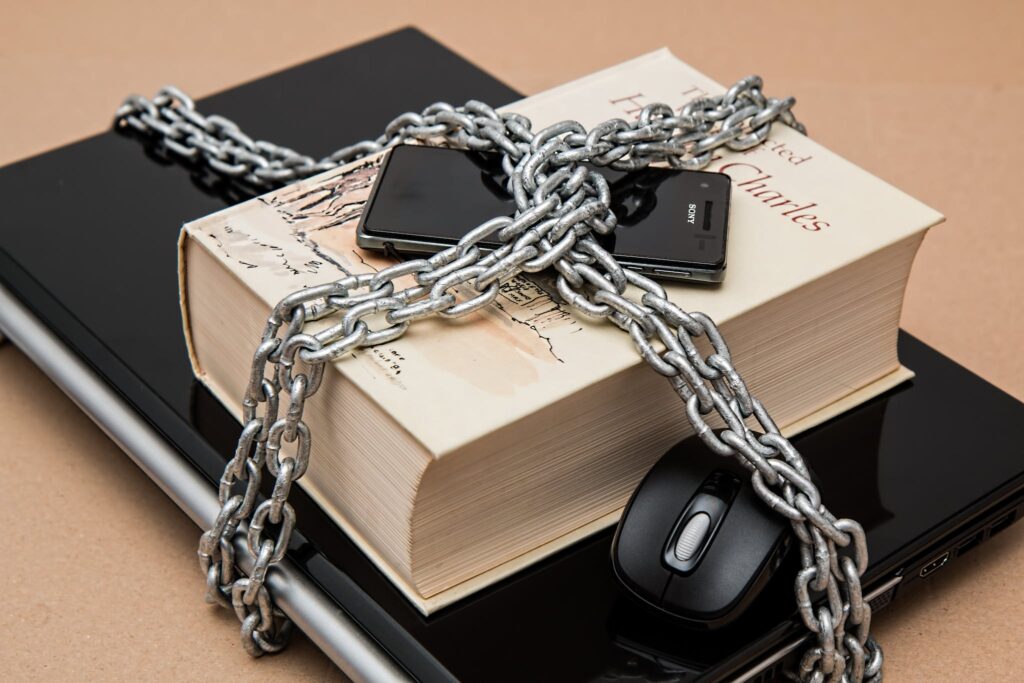Welcome to Cyber Security Month! As we step into October, it’s time to turn our focus towards securing our digital landscapes, and what better way to start than by talking about the cornerstone of online security – strong password behavior! I’m Peter Zendzian, here to guide you on this enlightening journey towards creating a safer online space for all.
Understanding creating a strong password is not just about memorizing complicated combinations of characters; it’s about developing habits that protect the very essence of our digital identity. In a world increasingly reliant on online interactions, the significance of sustaining a secure digital environment has never been more paramount.
This is the first of a series of four articles designed to arm you with knowledge and practices to fortify your cyber defenses. Here’s a sneak peek at what’s coming up next:
- Week 2 – The Importance of Multi-Factor Authentication: Delving into additional layers of security.
- Week 3 – Phishing Scams, Meet the SLAM Method: Learn how to counteract deceptive online threats.
- Week 4 – Let’s Chat(GPT) About Artificial Intelligence: Exploring the impact and implications of AI on cybersecurity.
Join me in navigating through these pivotal topics, and let’s build a safer digital future together! So, sign up for daily tips and buckle up as we dive deep into the importance of strong password behavior and why it’s the bedrock of online security.
Understanding the Importance of Strong Password Behavior
Recognizing the significance of robust password practices is vital for sustaining a secure digital environment. Passwords are the first defense against unauthorized access to personal and sensitive information. Password strength is determined by complexity, length, and uniqueness. Uppercase and lowercase letters, numbers, and special characters characterize rhobust passwords. Password guidelines and policies are established to ensure users create strong passwords and regularly update them.
Password rules should be followed to enhance password strength. These rules may include having a minimum length requirement, excluding common words or personal information, and using a password manager to securely store and generate complex passwords. Password entropy, a measure of the randomness and unpredictability of a password, should be maximized to make it resistant to password-cracking techniques.
They should be stored as hashes rather than plaintext to protect passwords further. Password hygiene practices, such as avoiding reusing passwords across different accounts and changing passwords periodically, are essential to mitigate the risk of password compromise.

What makes a Password Strong?
By incorporating a variety of characters and regularly updating passwords, you can effectively develop complex passwords and enhance your online security. When creating strong passwords, following certain rules can significantly improve password strength. Here are some important rules to consider:
- Password Length: Aim for a minimum of 12 characters to ensure complexity and reduce the risk of brute-force attacks.
- Multi-factor Authentication: Implement additional layers of authentication, such as biometrics or one-time codes, to provide an extra level of security.
- Credential Management: Use a password manager to securely store and manage your passwords for various online accounts.
- Password Storage: Ensure passwords are encrypted to prevent unauthorized access in case of a data breach.
- Password Hardening: Regularly update passwords and avoid reusing them across different accounts to minimize the impact of a compromised password.
These rules will strengthen your passwords and enhance your cybersecurity and data security. Additionally, password strength meters can help you evaluate the strength of your passwords and make necessary improvements.

Dangers of Password Sharing and Reusing
Password sharing and reusing pose significant personal and organizational security risks. When individuals share passwords, they relinquish control over their personal information, making it vulnerable to unauthorized access. Moreover, reusing passwords across different accounts increases the likelihood of a password breach. Once a password is compromised in one account, cybercriminals can use automated tools, such as credential stuffing, to attempt to access other accounts using the same password. This increases the risk of a data breach and exposes sensitive information to potential misuse.
In addition, password reuse makes individuals and organizations susceptible to various attacks. For instance, brute force attacks and dictionary attacks involve systematically trying numerous combinations of passwords until the correct one is found. On the other hand, password spraying uses a small set of commonly used passwords to target multiple accounts. Rainbow tables containing precomputed hashes of commonly used passwords can also be employed to crack passwords quickly. These techniques are more likely to be successful if individuals reuse passwords across multiple accounts.
To mitigate the risks associated with password sharing and reusing, it is crucial to establish strong password policies and educate users about the consequences. Implementing measures such as enforcing password complexity requirements, regularly updating passwords, and maintaining a password blacklist can help enhance security and prevent unauthorized access.

The Role of Multi-Factor Authentication in Password Security
With the increasing prevalence of cyber threats, organizations must consider implementing multi-factor authentication as an additional layer of protection for their systems and data. Multi-factor authentication (MFA) is a security measure that requires users to provide multiple forms of identification before granting access to a system or application. This adds an extra level of security beyond just a username and password combination.
Here are five reasons why multi-factor authentication is crucial for enhancing password security:
- Increased protection against unauthorized access: MFA adds a layer of security by requiring users to provide something they know (password) and something they have (such as a mobile device or security token).
- Mitigation of password-related risks: MFA reduces the reliance on passwords, which are susceptible to being guessed, stolen, or hacked. This helps to minimize the risks associated with weak passwords, password sharing, and password reuse.
- Improved password behavior: MFA encourages users to adopt better password practices, including regular password rotation, strong and unique passwords, and avoiding common password patterns.
- Enhanced user experience: MFA can be seamlessly integrated into existing authentication processes, providing a convenient and user-friendly experience without compromising security.
- Comprehensive security audit: Implementing MFA allows organizations to conduct regular password audits, ensuring users adhere to password quality and expiration policies.
Tips for Maintaining Secure Password Habits
To ensure maximum security, following best practices when maintaining secure password habits consistently is important.
Implementing two-factor authentication adds an extra layer of protection by requiring a second form of verification, such as a fingerprint or a unique code sent to your phone, in addition to your password.
Utilizing a password vault is another effective strategy. These tools securely store all your passwords in one encrypted location, eliminating the need to remember multiple complex passwords.
Strong passwords are crucial; they should be lengthy and include a combination of upper and lowercase letters, numbers, and special characters. Avoid using easily guessable information such as your name, birthdate, or common words.
Regularly change and update your passwords to prevent unauthorized access. In case of a weak password, it is essential to have a reliable password recovery process in place.
Organizations should establish password governance policies that promote strong passwords and educate employees about password best practices.
Lastly, cultivating password security awareness among users is vital to reinforce the importance of maintaining secure passwords and protecting sensitive information.
Conclusion
In conclusion, strong password behavior is crucial in enhancing security. Individuals can significantly reduce the risk of compromised accounts by following rules for developing complex passwords and avoiding password sharing and reusing.
Additionally, implementing multi-factor authentication further strengthens password security. By maintaining secure passwords, users can protect their sensitive information and mitigate the potential for unauthorized access.
Frequently Asked Questions
What Are the Consequences of Not Following Strong Password Behavior?
Not following strong password behavior can have severe consequences, including increased vulnerability to cyberattacks, unauthorized access to sensitive information, financial loss, damage to reputation, and legal repercussions.
How Often Should Passwords Be Changed to Maintain Security?
Passwords should be changed regularly to maintain security. Best practice recommendations suggest changing passwords every 90 days, although some organizations may require more frequent changes depending on their specific security policies and risk assessments.
What Are the Potential Risks of Using Password Managers?
Potential risks of using password managers include the risk of a single point of failure, vulnerability to hacking or data breaches, and the need to trust the security and reliability of the password manager provider.
Can Using Common Phrases as Passwords Be Considered Secure?
Using common phrases as passwords is not considered secure due to low complexity and predictability. Strong, unique passwords that combine uppercase and lowercase letters, numbers, and special characters are recommended.
How Can I Protect My Passwords From Being Hacked or Stolen?
To protect passwords from being hacked or stolen, following best practices such as creating strong, unique passwords, utilizing two-factor authentication, regularly updating passwords, and avoiding sharing or using them across multiple accounts is crucial.



